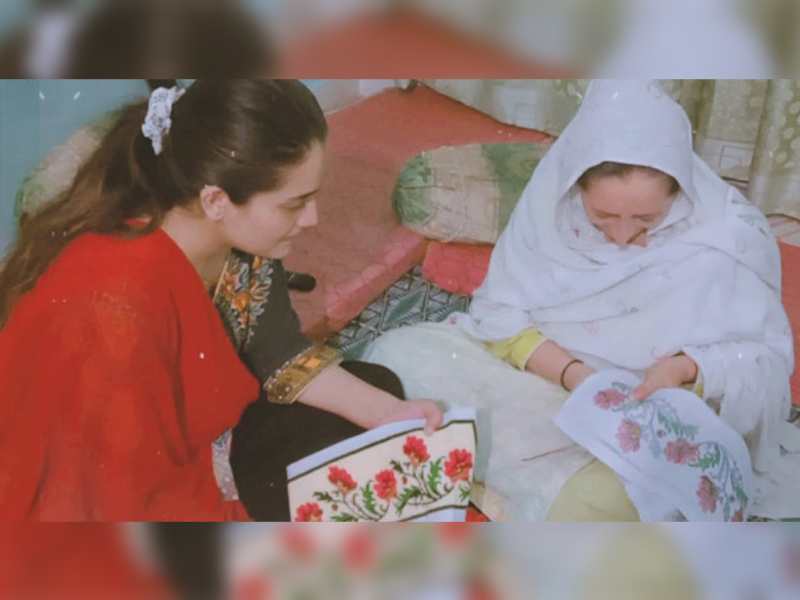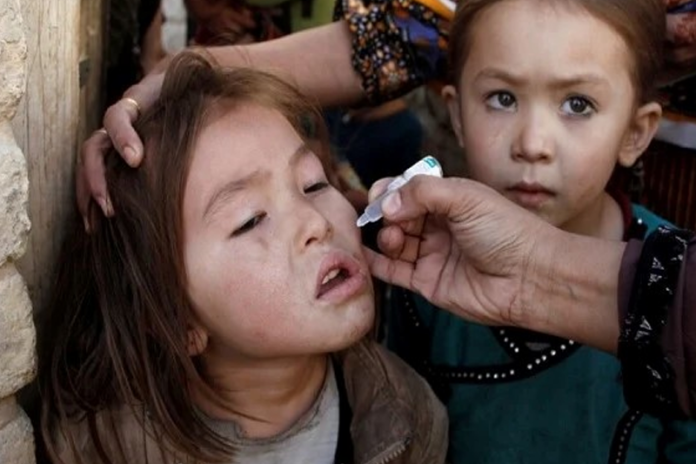Empowering household women via cross-stitch embroidery design training

- 282
- 0
Pakistan ranks last among developing nations as well-developed handicraft industry with share of $255 million might ensure sizable GDP contribution, investment opportunities, increased foreign exchange revenues, cultural preservation, entrepreneurship growth and poverty reduction.
Pakistan is blessed with skilled artisans who produce exquisite handicrafts with rich textural details in high demand worldwide. Only requirement is to guarantee that production is carried out methodically and economically.
We, students of Jinnah University for Women Department of Business Administration started handicraft training project (Cross-stitch embroidery design) for community development to train women in society under guidance of Miss Maria, who supervised us during journey with great enthusiasm and determination. It is such great experience to learn under her guidance. Project aims to empower women through handicraft training and provide them with required skills and income-generating opportunities. Education, economic independence, political engagement, social equality and information access are few ways to empower women. Craft skills are knowledge and abilities attained by those who perform manual labour. Through repetition and experience, these abilities can be acquired. Traditional occupations, including pottery, basket weaving, woodworking, sewing, knitting and embroidery are frequently linked to craft skills. Numerous crafts call for particular tools and supplies. We trained women in cross-stitch embroidery design skills. Cross-stitch embroidery designs are traditional craft practiced by women across Pakistan. However, due to lack of skills and market access, many women have been unable to make living out of their craft. In addition, crafters are often marginalised and discriminated against in society. Weaving is craft skill that involves using natural fibers to create fabric. In ancient times, cloth was woven from wool, flax, cotton, silk, or linen. Today, weavers use synthetic fibers such as nylon, polyester, acrylic and rayon. Through our project, we aim to impart knowledge and skills to some selected women in community. As a student, we couldn't run this project on large scale, so we ran it on smaller scale for those women who want to start their own business. We trained them to weave different types of products, including tablecloths, dishcloths, decoration pieces, wallet designs, handbags, etc. Our goal is to create, through our efforts, small network of women crafters in community who can sell their products at fair prices and generate income for themselves and their families. At end of this project, we finally trained some women, who can now create different types of cross-stitch embroidery products that they can sell to customers.
When launching their own businesses, women encounter numerous challenges. Lack of skills, low literacy rates, poor infrastructure and high costs are few of these. Due to illiteracy, many women are unable to read or write. As result, they are unable to sign contracts, pay bills or complete legal paperwork.
Women who received craft training can now develop skills they need to launch their own businesses. Training in handicrafts shows women how to create variety of goods and products. Women were urged to sell their goods in market when training was finished. Through this training, women are empowered to take control of their lives and can achieve financial independence. Whole journey of training programme was great learning experience for us. Through this project, we have learned that women who are generally poor with low literacy rate are full of talent. They need proper knowledge and skills; if they are provided with adequate tools and materials, they will be able to produce quality goods.
Published in The Daily National Courier, December, 05 2022
Like Business on Facebook, follow @DailyNCourier on Twitter to stay informed and join in the conversation.

















































